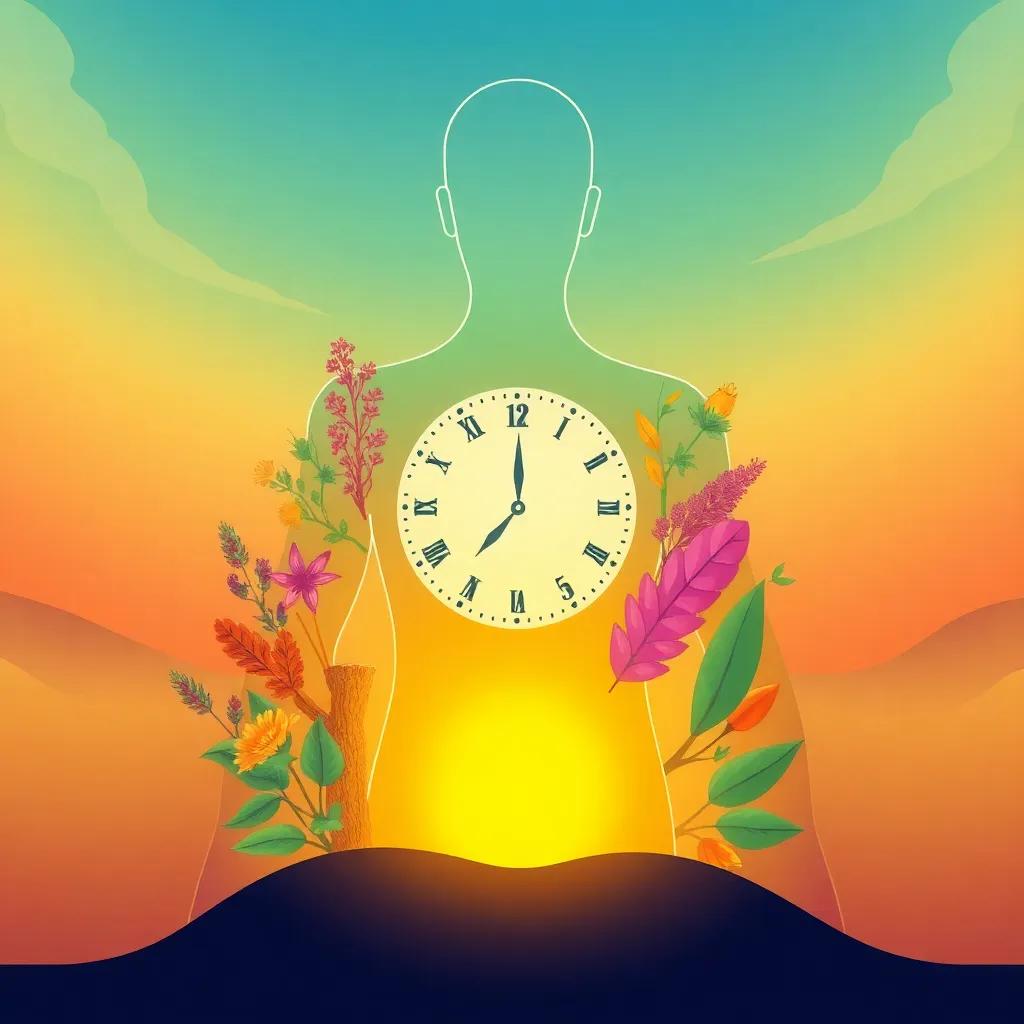Explore how aligning herbal remedies with circadian rhythms enhances their efficacy, focusing on herbs like ashwagandha, turmeric, and ginseng for chronic conditions.
Discover how timing herbal intake with your body’s internal clock can maximize health benefits and manage chronic conditions effectively.
Introduction to Chrono-Herbalism
Chrono-herbalism is an emerging field that combines the principles of chronobiology with herbal medicine. It focuses on the timing of herbal intake to align with the body’s circadian rhythms, thereby enhancing the efficacy of herbal remedies. This approach is grounded in the understanding that the body’s physiological processes, including metabolism, hormone secretion, and immune response, follow a 24-hour cycle.
Recent studies have shown that the timing of herbal intake can significantly influence their therapeutic effects. For example, a study published in the Journal of Ethnopharmacology
found that the bioavailability of certain phytochemicals varies depending on the time of day they are consumed. This has led to a growing interest in chrono-herbalism as a way to optimize the health benefits of herbal remedies.
The Role of Phytochemicals in Modulating Circadian Rhythms
Phytochemicals, the bioactive compounds found in plants, play a crucial role in modulating circadian rhythms. These compounds interact with the body’s internal clock, influencing the expression of clock genes and the production of hormones like melatonin and cortisol. For instance, ashwagandha, an adaptogenic herb, has been shown to regulate cortisol levels, thereby helping to manage stress and improve sleep quality.
Turmeric, another widely studied herb, contains curcumin, which has been found to modulate the expression of clock genes in the liver, thereby influencing metabolic processes. A study published in Nature Communications
demonstrated that curcumin supplementation at specific times of the day could enhance its anti-inflammatory and antioxidant effects.
Specific Herbs and Their Optimal Timing
Different herbs have different optimal times for consumption, based on their effects on the body’s circadian rhythms. Here are some examples:
- Ashwagandha: Best taken in the evening to help regulate cortisol levels and promote restful sleep.
- Turmeric: Optimal when taken in the morning to enhance its anti-inflammatory effects and support metabolic health.
- Ginseng: Most effective when consumed in the morning to boost energy levels and cognitive function.
These timings are based on the body’s natural rhythms and the specific effects of the herbs on various physiological processes.
Chrono-Herbalism in Managing Chronic Conditions
Chrono-herbalism has shown promise in managing chronic conditions such as insomnia, anxiety, and metabolic disorders. For example, a study published in the Journal of Clinical Sleep Medicine
found that taking ashwagandha in the evening significantly improved sleep quality in individuals with insomnia. Similarly, research published in Psychopharmacology
demonstrated that ginseng taken in the morning reduced symptoms of anxiety and improved cognitive performance.
In the context of metabolic disorders, chrono-herbalism offers a novel approach to managing conditions like diabetes and obesity. A study in Diabetes Care
found that curcumin supplementation at specific times of the day improved insulin sensitivity and reduced blood sugar levels in individuals with type 2 diabetes.
Integrating Chrono-Herbalism into Daily Routines
Integrating chrono-herbalism into daily routines requires a personalized approach, taking into account individual circadian rhythms and health conditions. Here are some practical tips:
- Consistency: Take herbal remedies at the same time each day to align with your body’s internal clock.
- Personalization: Consult with a healthcare provider to determine the optimal timing and dosage of herbal remedies based on your specific health needs.
- Monitoring: Keep a journal to track the effects of herbal remedies and adjust timing and dosage as needed.
By following these guidelines, individuals can maximize the health benefits of herbal remedies and manage chronic conditions more effectively.
Conclusion
Chrono-herbalism represents a promising frontier in the field of herbal medicine, offering a way to enhance the efficacy of herbal remedies by aligning their intake with the body’s circadian rhythms. By understanding the role of phytochemicals in modulating circadian rhythms and the optimal timing for specific herbs, individuals can take a more personalized and effective approach to managing their health. As research in this field continues to evolve, chrono-herbalism has the potential to revolutionize the way we use herbal remedies for health and wellness.

